Introduction:
Aquariums are captivating additions to any home or office, providing a glimpse into the mesmerizing underwater world. As responsible aquarium owners, it’s essential to maintain a clean and healthy environment for our aquatic friends. One of the key components in achieving this is selecting the right filter system. With various options available, it can be overwhelming to choose the ideal filter system for your aquarium. In this blog post, we will explore the different types of aquarium filters, their functionalities, and factors to consider when making a decision. By the end, you’ll have a comprehensive understanding of how to choose the right filter system for your aquatic habitat.
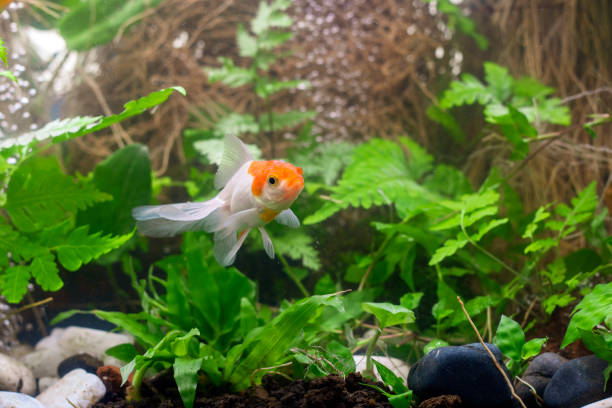
1. Importance of Aquarium Filtration
Aquarium filtration plays a crucial role in maintaining a healthy and thriving aquatic environment. It is essential for the overall well-being of the fish and other inhabitants, as well as the long-term success of the aquarium. The primary importance of aquarium filtration can be summarized in several key points.
Firstly, filtration helps to remove physical and chemical impurities from the water. It removes debris, uneaten food, fish waste, and harmful chemicals such as ammonia and nitrites, which can be toxic to aquatic life. By keeping the water clean and free from pollutants, filtration promotes optimal water quality.
Secondly, filtration aids in the establishment of a stable and balanced ecosystem within the aquarium. Beneficial bacteria colonize the filter media, breaking down harmful substances into less toxic forms. This biological filtration is crucial for the nitrogen cycle, converting toxic ammonia into nitrites and further into nitrates, which are less harmful to fish.
Thirdly, aquarium filtration provides essential oxygenation. The mechanical action of water passing through the filter, such as aeration or water movement, helps to increase the dissolved oxygen levels in the water, which is vital for the respiration of fish and other organisms.
Moreover, filtration also enhances the clarity and visual appeal of the aquarium. By removing particulate matter and debris, it reduces cloudiness and promotes crystal-clear water, allowing for better visibility and enjoyment of the aquarium’s inhabitants.By investing in the right filter system, you can provide a clean and safe haven for your aquatic pets.
2. Types of Aquarium Filters
a) Mechanical Filters:
Mechanical filters physically trap and remove solid waste particles from the water. They typically consist of a sponge, floss, or mesh pad that captures debris and prevents it from circulating in the aquarium. Mechanical filters are essential for preventing clogging in other filter media and enhancing water clarity.
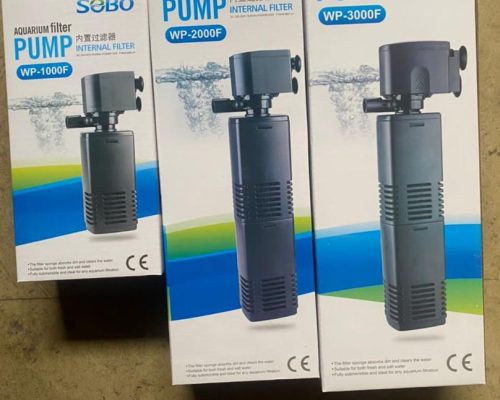
b) Biological Filters
Biological filters create a favorable environment for beneficial bacteria to grow. These bacteria break down toxic ammonia into less harmful substances, such as nitrites and nitrates. Biological filters are typically composed of porous materials, like ceramic rings or bio-balls, that provide a large surface area for bacterial colonization.
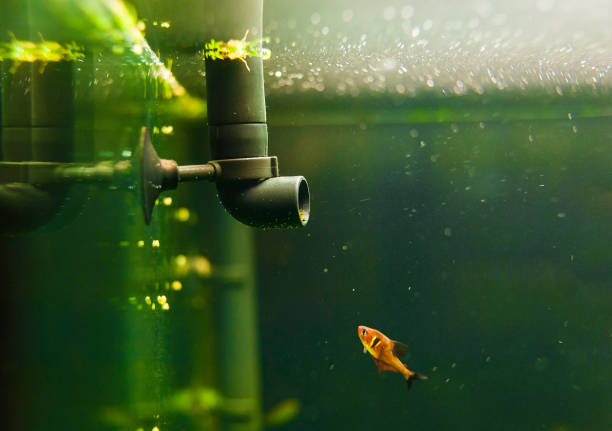
c) Chemical Filters
Chemical filters are optional but can be useful in specific situations. They utilize various chemical media, such as activated carbon or zeolite, to remove impurities, odors, and discoloration from the water. Chemical filters are often employed for removing medication residue or pollutants.
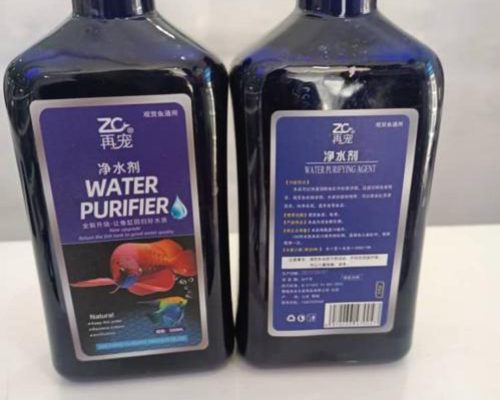
d) Undergravel Filters
Undergravel filters are placed beneath the gravel substrate and utilize a system of uplift tubes to draw water down through the gravel. They promote biological filtration by creating an environment for beneficial bacteria to thrive. While they are not as popular today, under gravel filters can still be effective in certain setups.
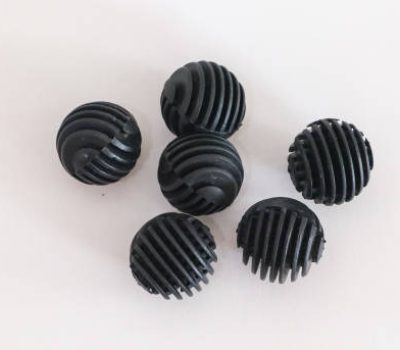
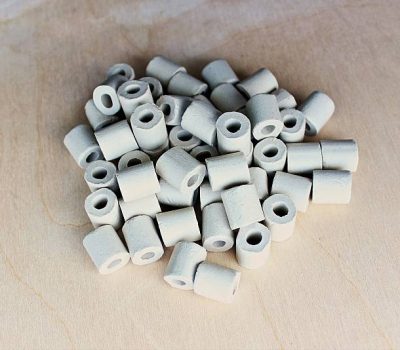
e) Canister Filters
Canister filters are versatile and powerful filtration systems that provide mechanical, biological, and chemical filtration in one unit. They are externally placed and consist of a sealed container filled with various filter media. Canister filters are known for their high flow rates, large media capacity, and ease of maintenance.
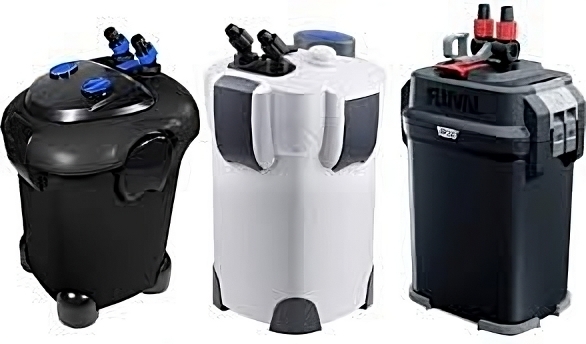
f) Hang-on-Back (HOB) Filters
HOB filters are widely used and are suitable for most aquarium setups. They hang on the back of the aquarium and draw water through a series of filter media. HOB filters offer mechanical and biological filtration and are relatively easy to install and maintain.
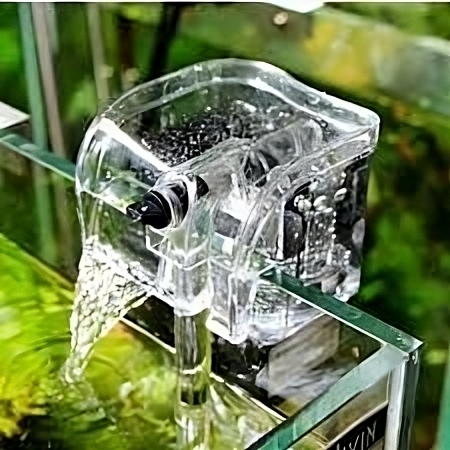
3. Factors to Consider
a) Aquarium Size and Stocking Levels
The size of your aquarium and the number of fish you have will determine the filtration capacity you need. Larger aquariums or heavily stocked tanks require filters with higher flow rates and larger media capacities to handle the increased waste production.
b) Filtration Efficiency
Consider the efficiency of the filter system in terms of its ability to remove debris and waste, provide adequate biological filtration, and maintain water clarity. A good filter should have adjustable flow rates to accommodate different aquarium needs.
c) Maintenance and Ease of Use
Regular maintenance is essential for the longevity and effectiveness of your filter system. Look for filters that are easy to clean, maintain, and replace media. Consider the availability and cost of replacement parts.
d) Noise and Aesthetics
Some filters can generate noise, which may be disruptive in certain environments. Consider the noise level and choose a filter that operates quietly. Additionally, consider the design and aesthetics of the filter system, ensuring it complements your aquarium’s overall appearance.
e) Cost
Filters come in various price ranges. Determine your budget and choose a filter system that provides the necessary filtration capacity without straining your finances. Remember that investing in a high-quality filter is a worthwhile long-term investment.
Conclusion:
Choosing the right filter system for your aquarium is vital for creating a healthy and thriving aquatic environment. By understanding the different types of filters available, their functionalities, and considering factors such as aquarium size, filtration efficiency, maintenance, noise level, aesthetics, and cost, you can make an informed decision.
Remember to research and seek advice from experienced aquarists to ensure the filter system you choose meets the specific requirements of your aquarium. Providing your fish with clean and well-filtered water will not only enhance their health but also allow you to enjoy the beauty of your aquarium to the fullest extent.
